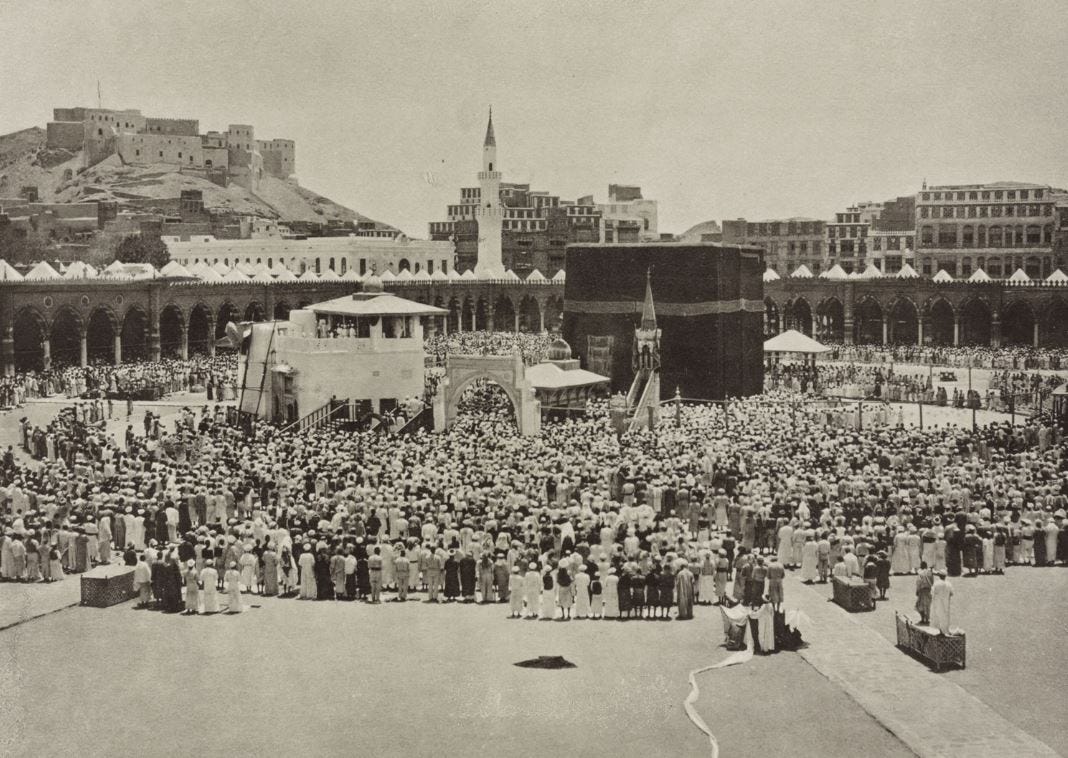The Makkan Era and the Early Life of Prophet Muhammad ﷺ - An Overview
The History of Muslims - 02/30
[View Table of Contents to see other lessons]
Abstract
This lesson seeks to outline and analyze the early life of Prophet Muhammad ﷺ during the Makkan era, drawing from available historical resources. It will explore various stages of the Prophet's ﷺ life pre-prophethood, during his youth, the early years of his prophethood, and the significant event of Hijrah. In understanding these stages, we will also reflect on the lessons that can be derived from this era.
Introduction
The Makkan era represents an integral part of Islamic history and the life of Prophet Muhammad ﷺ. It provides context to the socio-cultural milieu that influenced the early years of Islam. Given the limited historical accounts and the inherent challenges of historical preservation, our understanding of the Makkan era is constrained but nonetheless valuable.
The Pre-Prophethood Stage
Arabia, during the time of Muhammad's ﷺ birth, was a tribal society without any centralized government. Sandwiched between the superpowers of Persia and Byzantium, it remained relatively underdeveloped. The Prophet ﷺ was born in the 'Year of the Elephant,' and the events of his childhood, while significant, are surrounded by a mix of factual, exaggerated, and often fabricated accounts.
Youth and Marriage
Growing under the guardianship of his uncle, Abu Talib, Muhammad ﷺ was renowned in Makkah for his honesty and trustworthiness, traits that earned him societal respect. His marriage to Khadija (RA) at the age of 25 is also a notable period, spanning 15 years before the commencement of his prophethood.
The Early Prophetic Years
The initial period of prophethood saw the message of Islam being disseminated secretly, primarily to family and close associates. The early converts were predominantly from society's weaker segments, who were consequently subjected to intense persecution.
The Three Hijrahs
To escape this persecution, some companions migrated to Abyssinia, resulting in two migratory waves. The spread of Islam into Yathrib through Mus'ab Ibn Umair ultimately led to the pivotal event of Hijrah, where the Prophet ﷺ and his companions migrated to Madinah.
Lessons and Reflections
The Makkan era underlines several important lessons. It elucidates that societal transformation requires struggle and sacrifice. It reinforces that the Makkan revelation, focused primarily on theology, forms the core of Islam. Lastly, it reminds us of the humanity within historical processes and the challenges inherent in preserving historical accounts.
In conclusion, the Makkan era provides profound insights into the early life of Prophet Muhammad ﷺ, highlighting the socio-political conditions that shaped the beginnings of Islam and the challenges and milestones that marked the Prophet's ﷺ journey.
Keep reading with a 7-day free trial
Subscribe to UmmahArchive.org to keep reading this post and get 7 days of free access to the full post archives.



